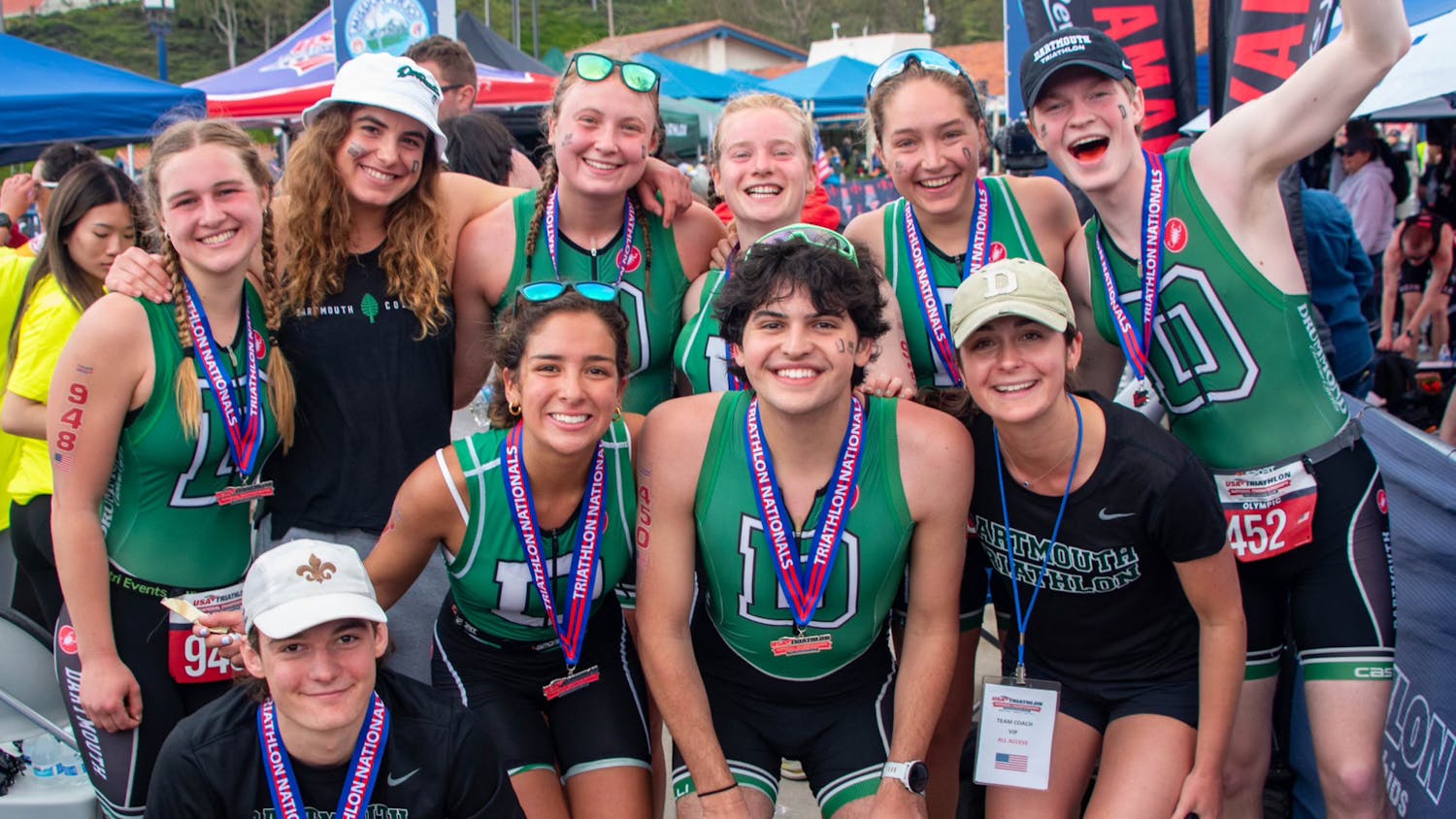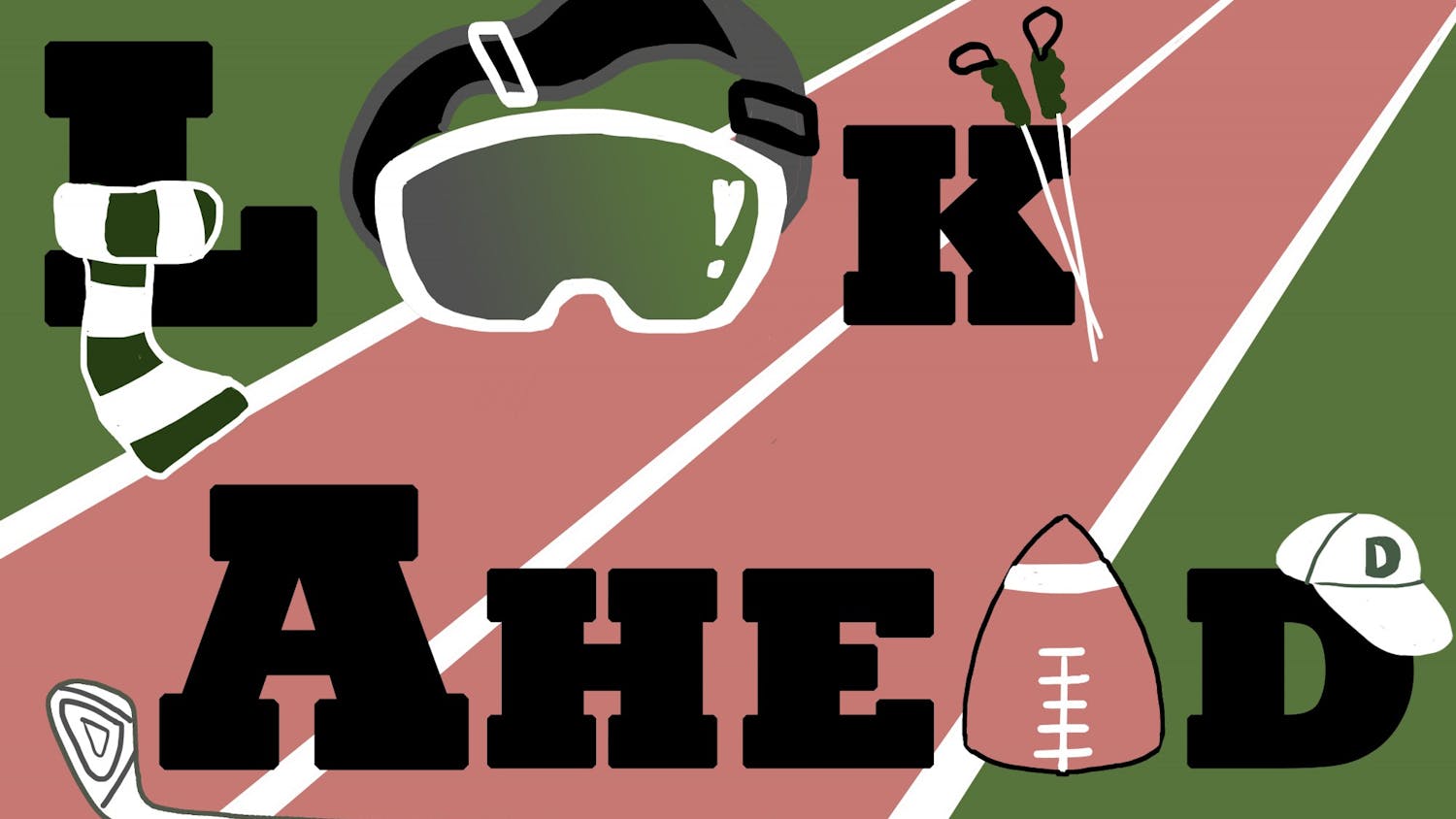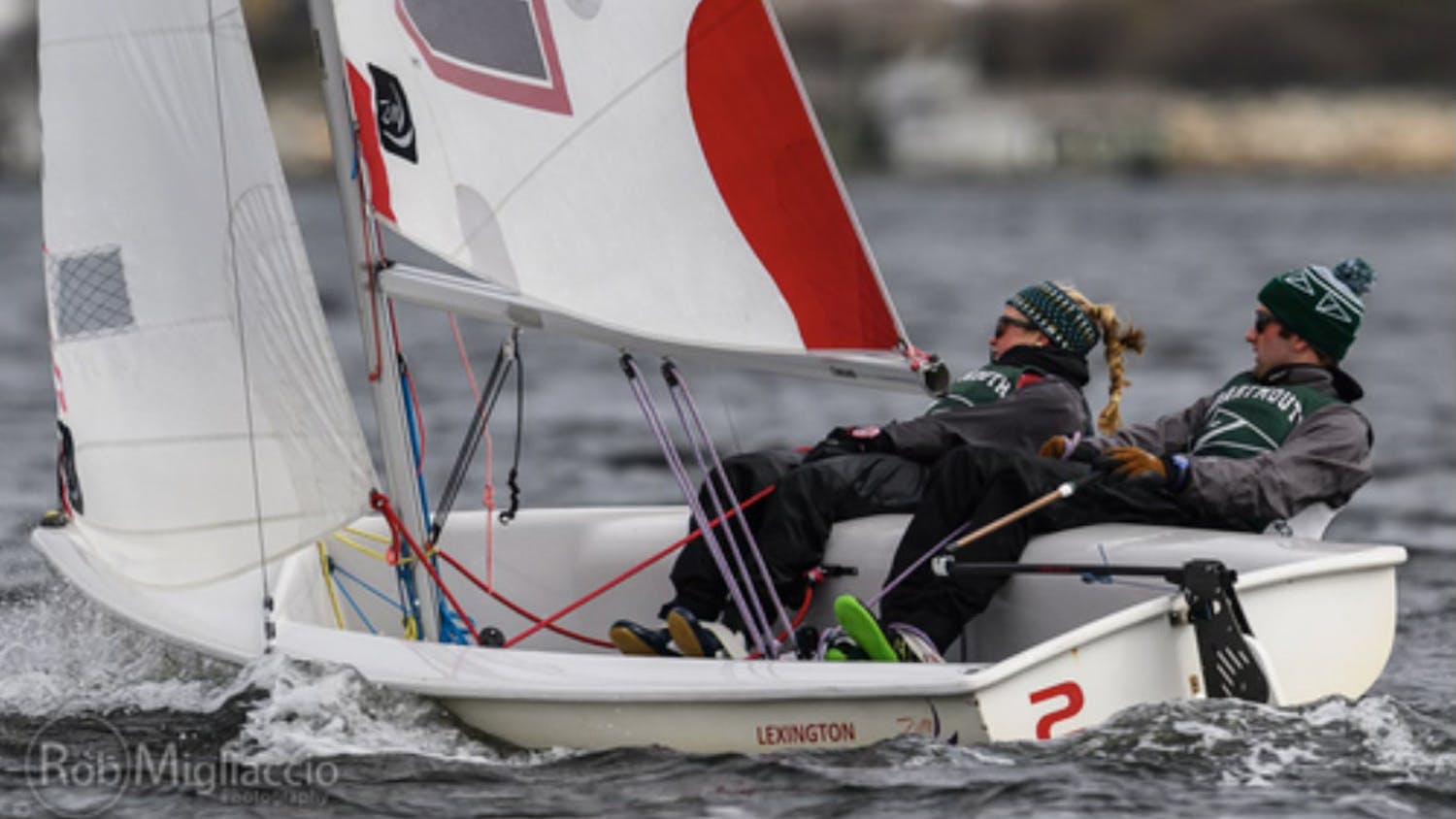All three rowing teams were in post-season action this weekend, each competing for a bid to their national championship. The No. 12 heavyweight men earned a bid to the Intercollegiate Rowing Association National Regatta with a varsity finish of 11th at the EARC Sprints Regatta. The lightweight men saw their season come to an end when they missed their qualification to the IRA regatta by one spot, finishing ninth at Eastern Sprints, less than three seconds behind the United States Naval Academy. The women’s crew team was also disappointed, finishing tied with Columbia University for seventh at the Ivy League Championship this weekend, a slight slip from last year’s fifth-place team finish but not enough to earn a NCAA tournament bid. Brown University ultimately took the Ivy crown for the women.
The heavyweight crews saw the most success this weekend, with head coach Wyatt Allen calling the EARC Sprints competition results overall “pretty good.”
“I think the team made progress,” Allen said. “The heats went really well for all of our boats. I thought they raced really aggressively. In the finals our 4V and 3V raced really well. I think the effort in the heat for the 1V and 2V caught up to them a little bit, and they probably underperformed a little bit in the final.”
The heavyweight boats, in order from one to four, finished 11th, 10th, seventh and fourth. The fourth varsity was the only boat to make the grand final — reserved for the top three boats in each of two heats — and accomplish a goal which all boats had set for themselves.
Due to its performance, the heavyweight team qualified for the IRA National Championship Regatta, which Allen called “the big one.” With five to seven boats clustered right around the Big Green in terms of speed, the difference between a good performance and a bad one could be as small as two to three seconds, Allen said.
“It’s why we do this sport,” Allen said. “These guys train year-round for really just a handful of races so this competition is exciting, and it’s what we look forward to all year.”
The lightweight men, on the other hand, left Eastern Sprints with a feeling of disappointment, head coach Sean Healey said. The 4V and 3V boats had their best races of the year, he said, finishing fifth and eighth respectively, but they still were not where they had hoped to be by the end of the year. The 2V, he said, had its most complete race as well and was narrowly edged out of the top spot in the Petite Final by the Massachusetts, behind by just 25 thousandths of a second.
The varsity squad, however, seemed to be the most disheartening performance, as it fell just one spot behind qualification for the IRA Regatta.
“The guys are definitely left wanting more,” Healey said. “We talked Sunday after the races about starting training for next year right now and about using the experiences on Sunday both as knowledge of what we need to do… and of experience on race day. For a dozen freshman on our team it was their first time racing at a collegiate championship regatta like that.”
Lightweight captain EdwardHarvey ’15 admitted that the season had been a tough one overall and that, based on the team’s seeding, the result was not entirely unexpected. Yet, he said, “It was kind of hard to end the season that way.”
Healey said that the team will be taking their disappointment as a lesson for the future.
“The experience gained there [at Sprints] is immensely valuable and the lessons learned there this year were painful,” he said. “It doesn’t mean they weren’t good lessons, but they were painful lessons.”
While the lightweight team was beginning to recover from its own shortcomings over the weekend, the women’s team was also trying to make light of its performance at the Ivy League Championships. Finishing tied in seventh was not head coach Linda Muri’s preferred outcome, but she said, “Things could have gone worse.”
“It’s definitely a building year,” she said. “We were really trying to just go out there and have the best races that we could knowing we were in a challenging situation with such a severe lack of water time this spring.”
Both athletes and coaches commented on the effects of the lasting winter weather and frozen river on the crew season, and the women’s team was no different.
The women were, Muri said, “far and away the last Division I program to get on the water this year.” This made the hard physical training of the winter difficult to translate into boat speed on the water and also made finding the right combinations of rowers for each boat difficult.
The men’s teams faced the same roadblock for their training this summer, and for the lightweight team the setback proved insurmountable.
“Typically Dartmouth, particularly the lightweight crew, has been able to pick up a lot of speed as the season goes on,” Harvey said. “We start of slow and get faster at a rate that exceeds other teams, but we didn’t manage to find that acceleration this year.”
Moving forward, the heavyweight crews will prepare for nationals and test out different combinations of rowers. Allen also plans to put together a freshman eight, composed of the freshmen men who do not make the four varsity boats and may include a couple of lightweight rowers.
Dartmouth will not be alone in sending a new combination of freshman to IRAs, Allen said, as many schools will be looking to get their rowers more experience. Since the end of the requirement that freshman race in freshman-only events, many schools have ended their separate freshman programs, with only the largest, most robust programs able to continue them.
The lightweight rowers, Healey said, were expecting this season to be a successful one that was better than the previous, but it ultimately fell short of their expectations.
“As we look towards next year, the foundation, a strong core of the team, is returning,” he said. “We have a pretty talented freshman and sophomore class who are coming up to be sophomores and juniors, and a small but really powerful leadership from our juniors that will become our seniors. So the hope is there.”
Yet he admitted that it was easy to be optimistic now, a full year away from next year’s championships, saying that there was “a lot that needs to happen” before then.
Harvey, who will graduate and leave the program this year, had mixed feelings about his final season.
“You’d like to finish with a successful showing at the championship, but you also recognize that the end result doesn’t always show what you really accomplished. We did accomplish a lot given the challenge in front of us,” he said. “I think we built some momentum going forward. We’ve demonstrated that trusting each other can get you where you want to be, that working hard can get you where you want to be and that trying to be both very aggressive and very technical is what the team needs to do going forward.”
He also believed that the returning classes, particularly the rising juniors, could be strong in the years to come, and that the leadership, with captain Eliot Harper ’16, would remain.
The prospects for future years of women’s rowing are good, Muri, who has just completed her first year with the team, said. The team is only losing a handful of rowers and a coxswain in the Class of 2015 and seems to have a stronger underclassman base.
“We have a lot of returning rowers and coxswains, which is terrific.” Muri said. “So I think we’re only going to go up from where we are now.”
The women’s team has struggled in recent years with retention, and Muri is looking to expand the squad so that it is more similar to other schools in the league and across the country.
After its strong performance at Eastern Sprints, heavyweight men’s rowing will continue its season by competing in the IRA National Championship Regatta May 28 to 30 at Mercer Lake, New Jersey.



